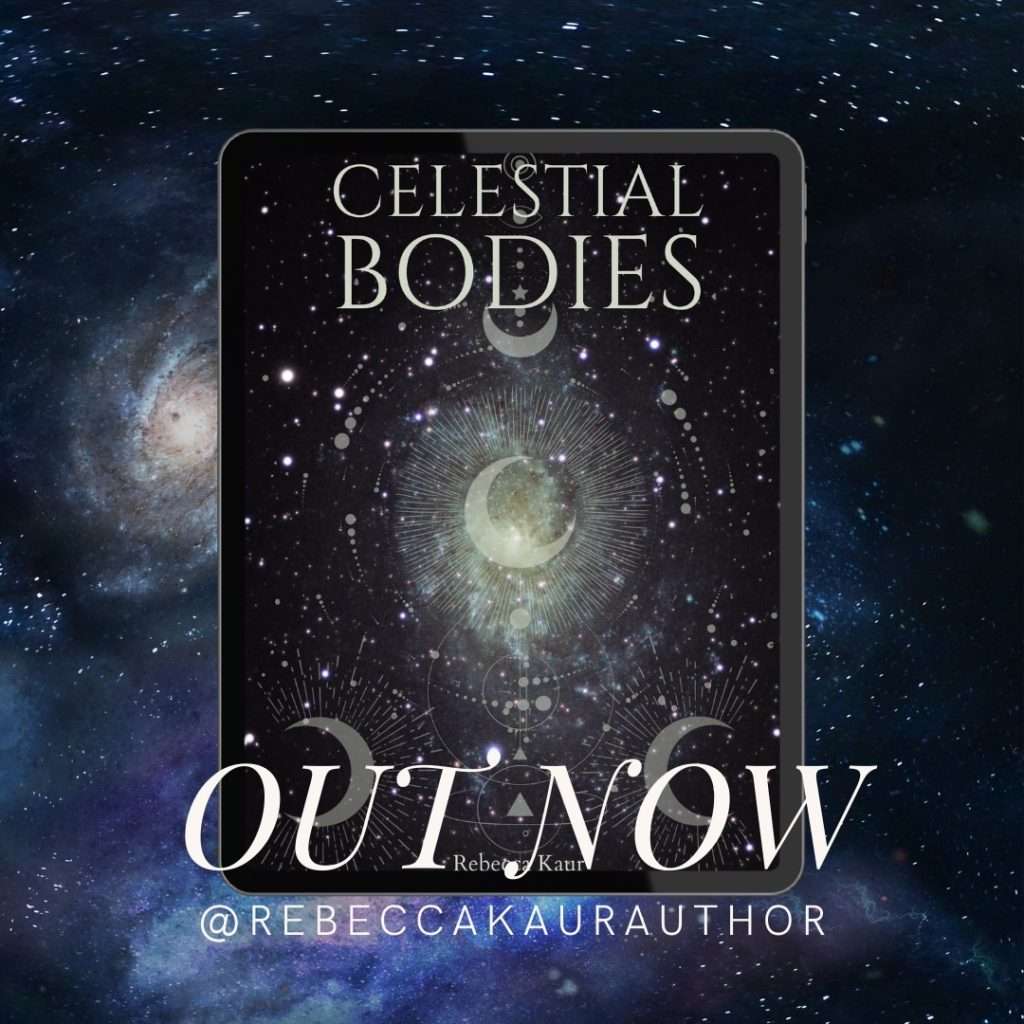We’ve had some issues with emails going to hotmail, outlook and related addresses. If you’ve recently made a purchase using one of these and not received a confirmation email, please get in contact with us – use an alterative email address for contact or purchase if you can.

For all things fantasy, horror, and speculative fiction
Announcement:
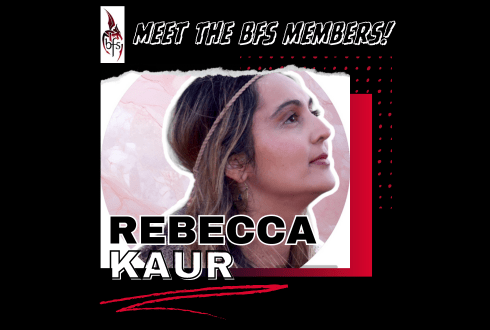
Meet Rebecca Kaur
Every Friday, we meet a member of the BFS and peer deep into their soul (or, at least, a form they filled out). Want to be featured? Email us: online@britishfantasysociety.org
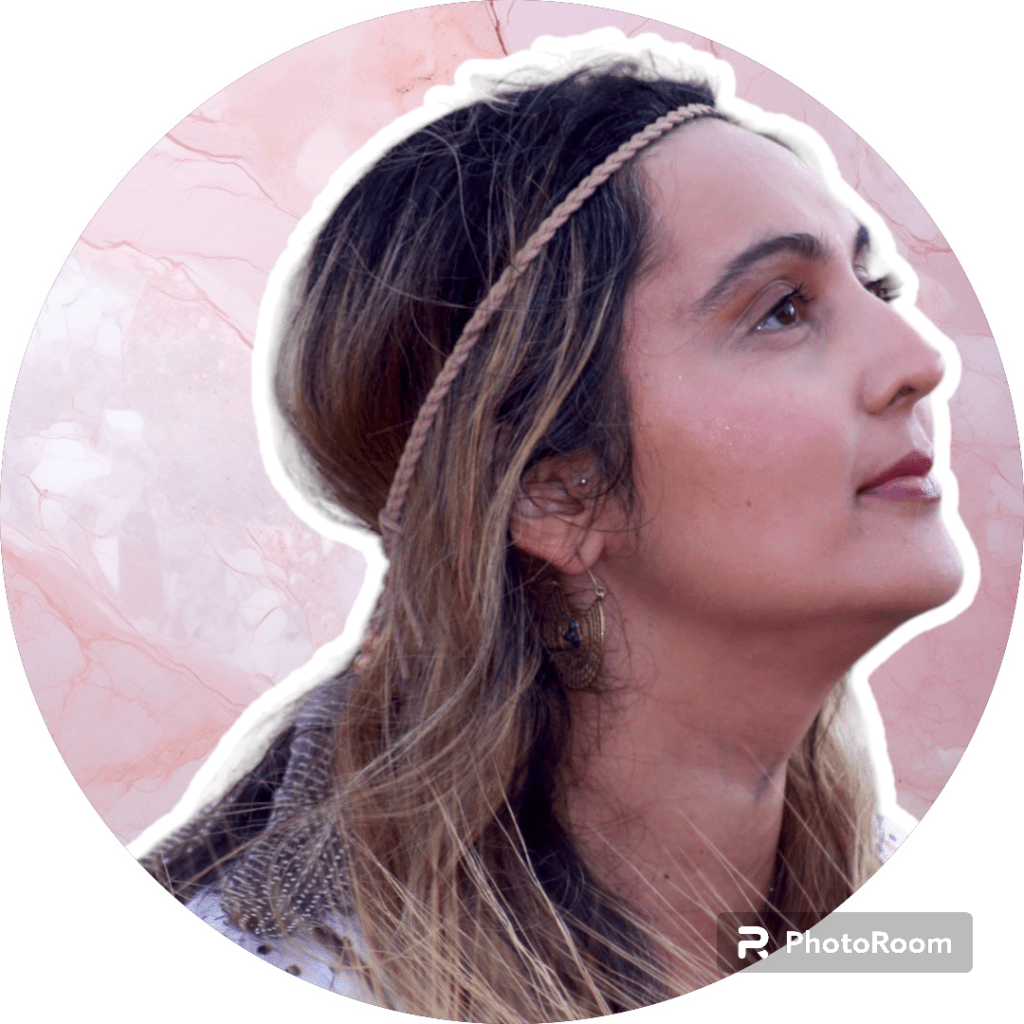
Name, including preferred pronouns:
Rebecca Kaur
Which region are you based in?
United Kingdom, West Midlands
If you write, which genre:
Fantasy, Romantasy and poetry.
If you don’t write, what do you do?
I also teach in a primary school.
Are you drawn to any specific SFFH sub-genres?
Romantasy, dystopian fantasy
Your influences
Tell us about the book/film/thing that got you into SFFH: What was it? How old were you? What impact did it have on you?
How do I explain that almost everything I read or watch influences what I write? I remember reading stories of Baba Yaga when I was around 7 years old, and watching Jim Henson’s The Dark Crystal. This was my initial pathway into SFFH. I then started exploring other avenues and fell in love with the cinematography of Blade Runner at around the age of 13. From this I tried to understand the basic concept of a morally grey character through the replicants. Strangely, this allowed for me to (try to) understand the human psyche through the idea that not everyone is completely a hero or villain and that our characters can become more three-dimensional by being written more like the replicants I saw—juxtaposition? I know!
More recently I have loved the world building of Sanderson and Tolkein as well as the action presented in Pierce Brown’s Red Rising series,which I have tried to incorporate into my writing. I am a real fan of inserting dark elements into a fantasy and have taken ideas from Red Rising and tried to flip things on their heads.
How does that early influence show up in your work now?
More than anything I have tried to add gritty elements of The Dark Crystal in my work; I was unnerved by the Skeksis and this is ultimately what has been shown in my writing.
Image of the Skeskis: Source
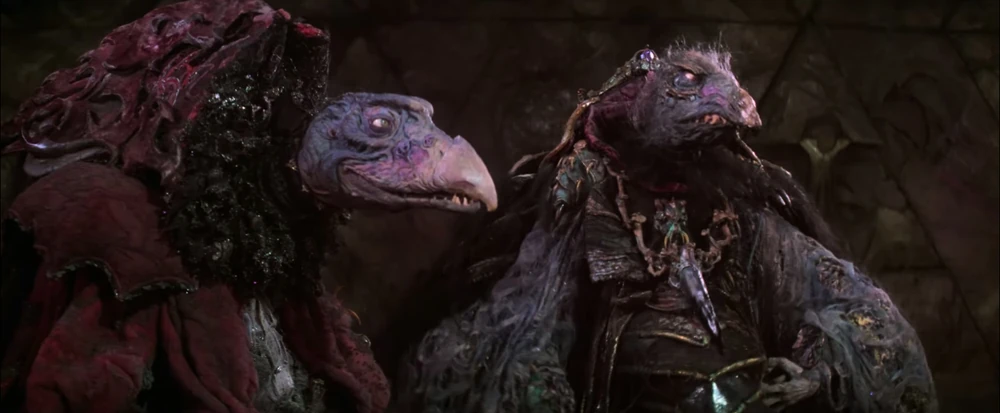
As I have grown I have started to incorporate elements of high fantasy and adventures. This has been a real learning curve for me; my understanding of writing has been self-taught through what I use to teach my pupils at school, to reading and taking elements of ideas which I have then made my own. The adventure part of the novel is what I find the most difficult as I tend to find that the characters become stale. This is currently what I am working on.
Where do you draw your creative inspiration from?
Usually I try to use what I have read and watched to draw creative inspiration. I have also been part of a writers community in my home town; this has helped me to put forward some ideas of my writing and try to understand the imposter syndrome that I suffer with. More recently, I have started listening to writing podcasts which have shared the ins and outs of how to stay on track, where to get inspiration and how to use social media to help with boosting your writing. One particular podcast speaks about using art and art galleries to conjure up inspiration. I have tried this and find it is wonderful for getting the bare bones of short stories!
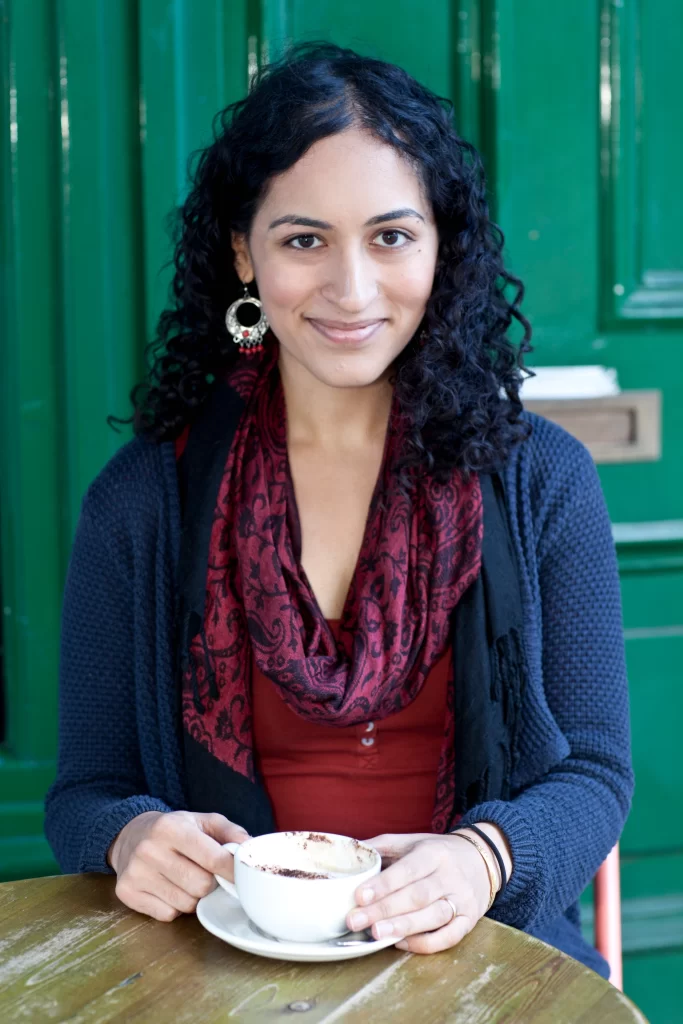
Who do you look to as a genre hero? Why?
I’m a huge fan of Brandon Sanderson. I feel that his writing is incredible, and I love the ‘coming together’ of the plot after being given elements of foreshadowing. Also, the sheer amount of writing that Sanderson does is impressive if not slightly unnerving!
I do also love the influx of diverse writers in the genre. Seeing more female writers like Tasha Suri (pictured) gives me the confidence to write knowing there are readers in the world who want to read stories that are written by South Asian females about South Asian characters.
Your work
You’re stuck in an elevator for 60 seconds with that hero, and they want you to describe your work. Give us the pitch.
I have a number of things I’m working on but my favourite is a three book series I have named ‘Prophecy’. It’s based on South Asian lore and has South Asian characters. The premise is that there is a life force that powers a land that has been pillaged. Some elite members of the land were able to access this force (known as the Auralight) and can use crystals to bend fire/water etc, but now that the Auralight has failed this has not been accessed for a while. Then, 300 years later we are introduced to a group of people who have become slaves and are living in squalor, including our protagonist, Thiran. These people answer to the Druz, who still have access to the last remains of Auralight but use it to drain young girls to keep themselves from ageing. There are also the keepers who have spent generations prior, during and after the failing of the light, trying to understand the force. These are like scholars. This is where we also meet Yodh, who has been working on understanding the origins of crystals and stumbles upon Thiran fleeing for her life…
What are you working on right now?
Currently I have a collection of short stories (micro fiction) based around human emotions and our links to the everyday things we own. It is more of an understanding of our emotions and how we treat things in our lives. I am also in the process of collating my second book of poems based around our relationship with food.
Thinking about all the stories/work you’ve done, what sticks out most in your mind? Why?
I wrote a poem about my love of India. It is almost a sonnet to the place which I have always loved to visit. I think the reason it sticks in my head the most is because when I read it back I cannot believe that I wrote it. Sometimes I surprise myself!
Photo by Ibrahim Rifath on Unsplash
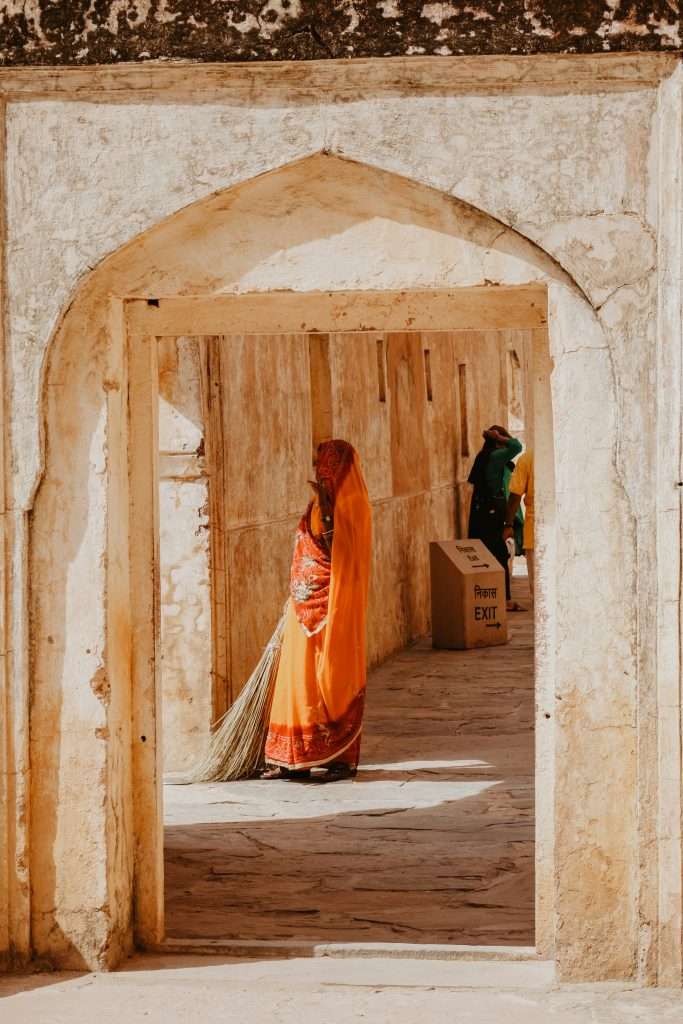
Where and when do you create/are you at your most creative?
Creativity ebbs and flows in me. Being a mum means I don’t always have the opportunity to write each day. At the moment I have been bringing my writing laptop and tablet to my workplace to have writing sessions during lunch breaks. I also will spend the first day of holidays sitting in a cafe and feeling like an ‘aesthetic writer’ who is vibing—I usually just enjoy having a hot cup of coffee while the time will allow me!
What’s the best advice you’ve received about creativity?
To just write and edit later. I tried editing as I went along but it was just too much. I have not even gotten to the point where I don’t correct spelling mistakes as often as this slows me down. Writing 50 words badly then editing after is better than not writing at all.
What’s your writing soundtrack?
I cannot write with music so usually plan with fantasy writing soundtracks then write in silence. I find that music gets stuck in my head then I cannot do anything functional with creating art.
The quickfire round
Sci-fi, fantasy or horror?
Fantasy
Quiet or loud?
Quiet
Dark or light?
Light
Strict lines or genre blend?
Genre blend
Awards or bestsellers?
Indie? I tend not to pick up books based on awards, but am a sucker for BookTok.
Fiction or non-fiction?
Fiction
Poetry or prose?
Prose
Plotter or pantser?
Bit of both – I try to plot the bare bones then see what the characters do later.
(Ed note: Rebecca will be on our plotter vs pantser panel at the Writing Your Way event on 6 July!)
Reading or listening?
Listening—however, I am a huge advocate for publishers releasing multiple media books so that I can pick up listening where I finished off reading.
Notebook or computer?
Until recently I was a notebook user. I still hand write initial ideas in my notebook then plan out on the computer and write in all places (Scrivener, Word, Notion).
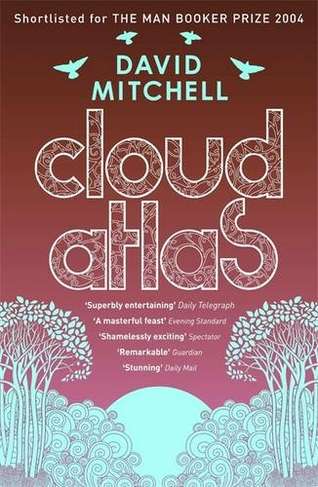
Favourite SFFH book of all time?
I’m not sure it counts as SFFH but I will sing about Cloud Atlas until the cows come home. The inter-twined timelines but past and future is brilliant!
Last book you read?
Earthlings, by Sayaka Murata (it was … I’m not sure how to even describe it!)
Any SFFH author on auto-buy?
I used to be a Sanderson autobuy but I try to read more widely now – also he really doesn’t need any more of my money, but I totally need the leather bound editions of Mistborn!
Favourite podcast?
Lore. It’s a spooky podcast based on real life occurrences which is told in this captivating story. It’s a firm favourite and I get sucked in everytime!
The home stretch
What’s the best thing about being part of the SFFH community?
I love to be able to create stories and be able to intertwine characters and real life experiences with my writing. It’s sort of like playing out situations if things had gone a different way or if something different was said.
Time to plug your stuff! Where can we find you and your work? What have you got coming up? Consider this your advertising space.
My poetry collection Celestial Bodies can be found on Amazon. I am also on social media at:
- Instagram – @RebeccaKaurAuthor
- TikTok – @rebeccakaurauthor
- Wattpad – rebeccakaurauthor
